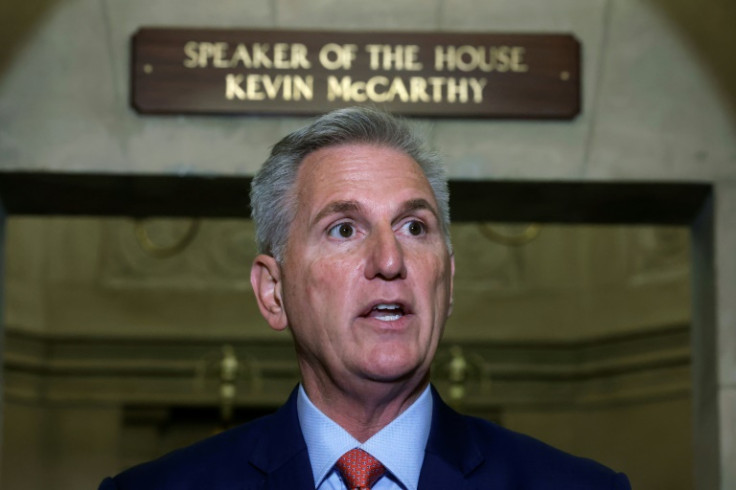Government Shutdown More Likely As McCarthy Rebuffs Senate's Initiative

The likelihood of a shutdown is increasing as Congress fails to reach any agreement to fund the government in the fiscal year that starts on Oct. 1.
Without significant progress in talks in the House of Representatives, the Senate agreed on Tuesday in a bipartisan way to start debating an alternative measure that would fund the government through Nov. 17. The proposal authorizes about $6 billion for domestic disaster responses and another $6 billion in Ukraine aid.
But House Speaker Kevin McCarthy rejected the initiative.
"I don't see the support in the House," he told reporters Wednesday morning. The speaker said he wants a meeting with President Joe Biden to discuss border security as part of the negotiations to avoid the shutdown.
McCarthy, in an attempt to get support from the far-right members of his own party, is pushing ahead instead with four bills that significantly cut government spending. Those bills have little chance of becoming law as they lack support from Democrats and Biden.
The president blamed "extreme House Republicans" for the risk of a shutdown .
"Funding the government is one of the most basic responsibilities of the Congress. It's time for these Republicans in the House to start doing their jobs," Biden said Tuesday in a statement posted on Twitter. "We have time, let's get it done.
A message from me on the extreme Republican shutdown: pic.twitter.com/Gofyc437z6
— President Biden (@POTUS) September 26, 2023
In May, Biden and McCarthy agreed on a budget of $1.59 trillion for the next fiscal year in an initial attempt to avert a government shutdown in 2023. Since then, a group of Republican lawmakers have been pushing for additional $120 billion in cuts.
Pressure from Trump
Former President Donald Trump, who is the leading candidate for the 2024 Republican nomination, is in favor a shutdown, posting on his Truth social media site on Sept. 25, "unless you get everything, shut it down!"
The previous government shutdown was the longest and occurred during the Trump administration. It lasted 35 days, ending in January 2019.
If lawmakers don't approve by Sept. 30 legislation to fund government activities in the next fiscal year, several federal branches will have no way to continue operating. It could mean furloughs in Social Security, no paychecks for millions of federal workers and impacts such as closed parks and even flight delays.
The White House said in a statement that thousands of air traffic controllers and Transportation Security Officers will have to show up to their jobs without getting paid until funding becomes available.
Moody's warned that a government shutdown would negatively affect the US creditworthiness.
"It would underscore the weakness of US institutional and governance strength relative to other Aaa-rated sovereigns that we have highlighted in recent year," Moody's said in a report published Sept. 25. "A prolonged shutdown would likely be disruptive both to the US economy and financial markets."
© Copyright IBTimes 2025. All rights reserved.




















